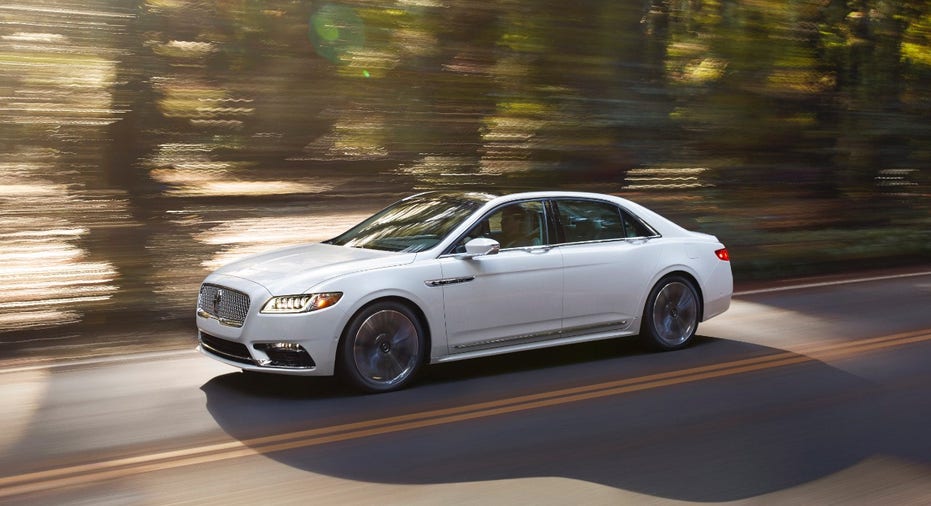Lincoln to Build Cars in China, in Pursuit of Cadillac

SHANGHAI--Lincoln Motor Co. will start building cars in China by late 2019, as it looks to better compete with German and U.S. rivals to gain a larger share of fast-rising demand for luxury cars in the world's biggest auto market.
In doing so, Lincoln hopes to catch up with General Motors Co.'s (NYSE:GM) Cadillac in shaking off a somewhat stuffy image back home to become a fashionable best-seller in China.
The Ford Motor Co. (NYSE:F) unit said Monday that it would start building Lincolns in the western Chinese city of Chongqing--where Ford already operates in partnership with local state-owned auto maker Changan Automobile Group Co.--by late 2019.
In January, Ford Chief Executive Mark Fields said the company was abandoning plans for a car plant in Mexico amid pressure from then-President elect Donald Trump for American firms to manufacture at home. In a recent address to Congress, Mr. Trump complained that the U.S. had lost "60,000 factories" to China.
However, a Ford spokeswoman said Monday that "Ford's philosophy around the world is to build where we sell," adding that Lincolns made in the U.S. would still be exported to China even after the new locally built sport-utility vehicle enters the market. Ford declined to reveal how many Lincolns it plans to produce in China.
The company sold 33,000 imported Lincolns in China in 2016, three times more than the year before, and local manufacturing would help the company to meet future demand, the spokeswoman said. Ford sold a record 1.27 million vehicles in China last year.
The German trio of Audi AG, BMW AG and Daimler AG-owned Mercedes-Benz has dominated China's luxury-car market for years. Lately high-end Chinese buyers have sought out new alternatives, said Yale Zhang, managing director of Automotive Foresight, with brands such as Cadillac, Lincoln, Jaguar, Land Rover and Volvo among the prime beneficiaries.
Demand for premium cars is growing 30% a year in China, he said--far outpacing the growth of the auto market in general, in which analysts expect sales to increase by around 3%-5% this year.
Cars imported to China incur a 25% tariff, making "local manufacturing a necessary step" for any auto maker wanting to sell in volume in a highly price-sensitive market segment, said Mr. Zhang.
Imports would remain strong, he predicted, as they cater to an extremely wealthy market segment in which an imported car is considered a status symbol.
Imported Lincolns in China range in price from around $41,000 for an MKZ sedan to $143,000 for the top-end Navigator SUV.
Like Lincoln, Cadillac has also been enjoying a renaissance in China, with GM opening a 160,000-unit Cadillac plant in Shanghai last year.
GM's China sales grew 7.1% last year, but Cadillac sales jumped 46% to 116,406 units. In January, it sold more Cadillacs in China than in the U.S. for the first time in the company's history.
In November, Volvo Cars owner Zhejiang Geely Holding Group Co. announced that the Swedish brand's newest luxury vehicle, the S90, would be manufactured in China.
Lincoln's move to produce a new SUV specifically for China also reflects the popularity of SUVs there. SUV sales rose by more than a fifth in January and February from the previous year, according to the government-backed China Association of Automobile Manufacturers. Auto analysts said they expect SUVs to start outselling sedans in China for the first time this year.



















